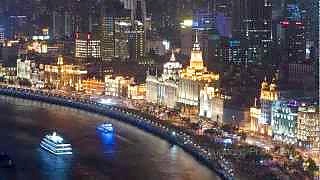WuLingYuan Scenic Area, HuNan province.
A great film by Sticker Travel ...
[640],shadow=true,start=,stop=
Live more ...
 ZhangJiaJie 张家界 and TianMenShan 天门山
ZhangJiaJie 张家界 and TianMenShan 天门山WuLingYuan Scenic Area, HuNan province.
A great film by Sticker Travel ...
[640],shadow=true,start=,stop=

|
With LongMeiMei ...
|

|
With David Oualaalou ...
|

|
A KunQu Opera performance at the World Horticultural Exposition, BeiJing, 2019 ...
|

|
The cherry blossoms in PingBa, GuiZhou ...
|

|
ShangHai, BeiJing and Hong Kong ...
|

|
With Walk East ...
|

|
Intrepid Italians live more ...
|

|
With BeiJing Liu ...
Bonus film - GuiYang walk at night - with Walk East ...
Plus ShanHu Park and GuiZhou Museum ...
|